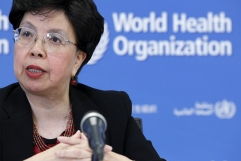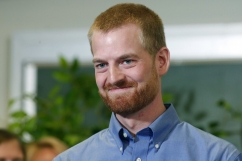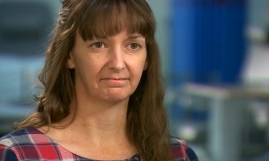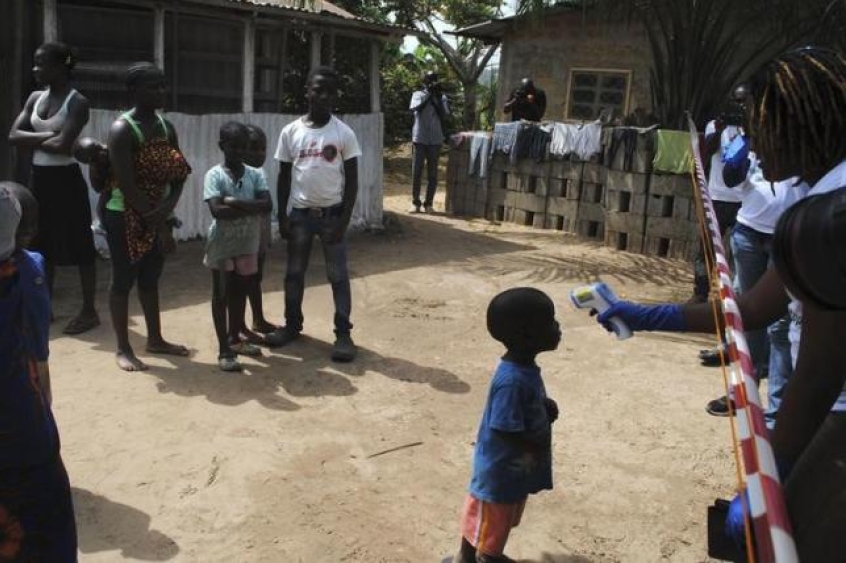
How would you feel being invited into an Ebola ward in the country that lost the most people to the virus? Imagine being the family that ran it?
Meeting Bev and Kendall Kauffeldt wasn't what I expected but it certainly has changed me.
We often wonder where the missionaries and the radicals are like Mother Teresa, Hudson Taylor and Brother Yun.
Sometimes we've just not heard of them yet.
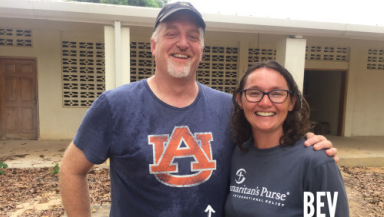
The first time I met Kendall I admit he looked impressive. Six foot something and built like a real leader, alongside thisI also noticed how he knew everyone's name and stopped as he welcomed them. Kendall's size wasn't overbearing but he had this gentle manner.
Later I met Bev his wife. Bev was shorter and slim. Nothing about her physically would have made you realise the strength she had inside.
Bev and Kendall live in Liberia and run the work of Samaritan's Purse in the capital Monrovia. They lived through the Ebola crisis of 2014/15. When the outbreak started they opened up the first Ebola ward, called Elwa 1, which later became the major player in stopping Ebola in Liberia. They were also the people who had the first chance to use the experimental ZMapp Ebola serum on their friends Dr Kent Brantly and Dr Nancy Writebol.
Bev told us stories that sounded more like a bad zombie movie than reality – almost unbelievable in their graphic nature, yet very, very real.
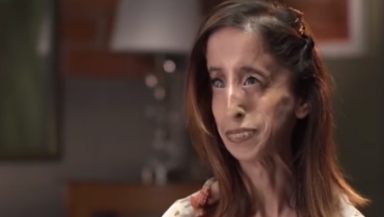
She told us about one Ebola patient being dumped by a taxi driver on Elwa's doorstep; blood already coming from his eyes, ears and mouth. He was dragged into Elwa 1 where he vomited contaminated sick all over the floor. Dr Writebol stood ankle deep in Ebola. Panic filled the ward, not because they feared for themselves, but because they had to stop the spread of Ebola.
One man, just before he died, was delusional and – trying to get up from his bed –left bloody hand prints on the wall of the ward before he collapsed. Because of the hallucinations before someone died they would many times have to hold a patient down dressed in protective gear until they passed away. All these stories sound graphic, but imagine living through them first hand.
Elwa 1 was full when it opened, so Elwa 2 was built holding 100 people, and then Elwa 3 holding up to 600 people. Elwa 3 still remains open today.
Kendall, leading the charge to serve the dying, fought to get the world's attention. And when others were leaving, Bev, Kendall and the kids stayed, risking everything.
Kendall told us: "I thought I was going to loose Bev to Ebola too. We were so scared but we knew we couldn't leave those we were called to serve." Bev would come home and not touch the family, in fear of spreading the virus if she had caught it.
Bev told stories of being covered in Ebola blood as she served from inside her high protective suit. Dressing and undressing, taking fifteen minutes, was a careful process to make sure you didn't become contaminated.
Bodies were piled up in bags before they were taken to be burnt. One reason Ebola spread so fast was because families knew if they took a family member to the Ebola ward they would never see their body again. So kept them home to die instead, before then contaminating themselves in their grief.
Bev and Kendall's view is that they had no choice. If they did nothing no one else would. Africa isn't high on people's agendas until the threat hits the west.
We boarded a small MAF plane to Foya in north Liberia which was carrying a hundred gravestones, each dating between June to August 2015. In Foya 250 people died of Ebola and the workers of Samaritan's Purse are still caring for those who lost their lives by providing dignity after death. Gravestones have been made and paid for by them.
What impacted me about their story is that their faith drove them to respond to the point of staying when everyone else fled. They turned their own property into a hospital ward. They didn't keep people at arm's length but welcomed people to die well. Bev and Kendall have broken my heart.
I have to ask how my faith educates and drives how I behave and live. How would I have acted in that situation? If suffering came to E3, would I run or live deep?
What strikes me is that radical welcome must mean putting ourselves at a loss. We may lose something by welcoming those others don't. Are we driven towards safety or driven to serve?
When the worst of Ebola had hit, Kendall and Bev left to visit the US for a break. But leaving was difficult; people in the US didn't want them. They carried 'stigma' and America didn't want Ebola. "What if they brought it with them?" news sites read. Eventually they had to be smuggled back into the US. Bev talks about landing in the US and seeing her face on a TV news channel at the airport and keeping her head down.
We asked Kendall and Bev how they were doing. Both held tears back in their eyes; the impact has been huge for them. They talk about 'before Ebola' and 'after'. "Life is different now," Kendall said. "We call it the new normal."
They lost friends as well as people they didn't know. They could have chosen after Ebola not to return but they knew the work rebuilding Liberia was only just starting.
Please pray for Bev, Kendall their family and staff as they continue to go out implementing post-Ebola recovery programs. It's a long road ahead.
Rev Cris Rogers is Vicar of All Hallows Church, Bow, London. He was visiting Liberia in connection with Operation Christmas Child, run by Samaritan's Purse.










